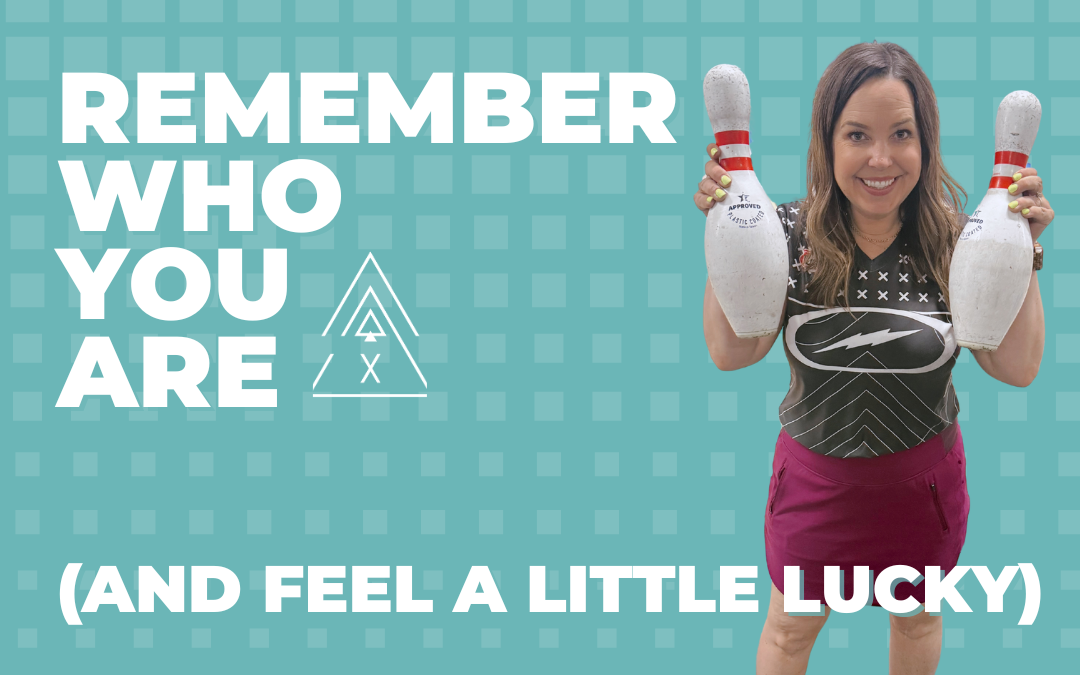I talk a lot about the importance of the mental game in bowling.
I have seen bowlers who have perfect fundamentals — textbook fundamentals — but never win because of their weak mental game. And I have seen mediocre players who win often because of their strong mental game. That’s how important it actually is.
But how much do you really know what I mean when I say that though?
Unless you’ve read and educated yourself about the mental game, or worked with a sports psychologist, I don’t think you can say you really know. It is taking a deep dive into your brain and what happens with it when something is on the line, when you are under pressure, and how you can train your brain to have more success on the lane. (oooh, nice rhyme, eh?) It’s not something that everyone naturally knows. It takes work getting to know it.
Everyone can have a good mental game though. So I am always telling people to read more mental game books. Really educate yourself on how your brain works and how understanding that can work for you.
But I see people all the time looking at someone like Clara Guerrero, who has such a great mental game and dismissing it as someone whose mental game comes naturally for her. They think that person was just born that way… But the truth is that is kind of a cop-out. It is looking at someone who has a good mental game and giving yourself an excuse for not having that same level of game. That’s not realizing that you actually have that same power.
Sure, it is not something that comes naturally. It takes work… but it’s important work that anyone can do.
We live in a society that constantly tells everyone, “just try your best.” Try, try, try, try, try… and then people get frustrated when it wasn’t enough.
I say, correction: you don’t want to try if you want to be great at something. You want to stop trying and start BEING. And, that begins with your mental game.
I just did an event in Milwaukee last Friday night for PBA Jr. I stood up in front of a number of youth bowlers with another pro bowler, Kris Prather from Team USA, as a sort of motivational talk. We talked about everything from our personal careers to bowling at all levels — high school bowling, college bowling, Team USA. It started as a Q & A from the audience but then I started asking them questions too to start more of an open discussion and because that’s just what I do, especially when I see the audience is a bit hesitant or shy asking questions. One of the questions that I asked them at the end was how many of them had ever read a mental game book? There were probably around 50 bowlers and their parents there. And only one person raised their hand.
That kind of blew my mind because I’m sure everybody that bowled that tournament felt nervous at some point and if they haven’t read anything maintaining their mental game, they have no clue how to really manage those nerves or how much managing their focus and breath affects their game. It was a real reminder to me just how often people still miss putting effort into something that is so essential.
So while talking to them, I used Jillian Martin as an example. She is a youth bowler, and was bowling that event but she has won a professional women’s event already. I explained that you don’t do that by just winging it. I also know that she has read mental game books and is taking all levels of the game seriously. She understands that there is a way for you to educate and prepare yourself for when you’re nervous. They are ways to manage your breath and heart rate, ways to stay focused and not become distracted. The answers and understanding can be found in mental games books.
I always tell aspiring bowlers to spend as much time understanding the mental game as they do practicing on the lanes. Those who do that are the ones who begin winning more often.
I told the young bowlers at this event the other night, “if you really want to get to the next level, literally in anything, then the mental game is essential. You can’t cut that corner. It’s not worth leaving that part of the game to chance.” And then I gave them homework.
I challenged them all, for the month of September, to read their first mental game book. Because I said it is essential to moving to the next level. And I told them that whatever book they found, I wanted them to read it in September and report back. They can find me on social media and tell me what they read and what they got out of it.
I started reading mental game books when I was 12. I think that’s why I had so much success at a young age, because I was able to understand what is going on inside our minds can affect our success on the outside. I understood how to not get caught up focusing on my opponent’s great shots because that outward focus can affect my next frame. I needed to let that go. And that isn’t something that people know how to do innately. It’s actually quite difficult. But you can learn it.
When I was a youth bowler, I would bowl these tournaments in Indiana called the Kegler Open. They were a bit like my EYT events and it meant a lot when you won because there were a lot of good bowlers there. And I remember at one point early on, when I was probably around 13, I was in the finals. I remember sitting in the back when the other player was up to bowl, and I just sat there staring at the tiles on the floor because I remember knowing that I bowled better when my mind was clear. I was just zoning out on this tile on the floor, completely staring at it, almost like a meditation. And it was clearing my mind. So when I went up next, I was able to bowl with a clean slate, without any stress or distraction from what had gone on before me.
Our brains are crazy complex. To be able to understand what happens inside your brain when you adjust your focus, your breath and your heart rate is incredible. And it’s super important to realize how much power your understanding of all that gives you in your game.
So I challenge you to read a mental game book this month too, and then let me know how it helps you. One of my favorite mental game books is The Inner Game of Tennis by Timothy Gallwey. That’s a great starting point if you’re not sure where to start.









0 Comments